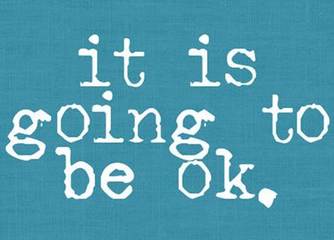|
Eating disorders are often very misunderstood. I have heard over and over people say things like "they are just a phase." Jokes are often made about eating disorders and some even insinuate that eating disorders are an illness about vanity. These misconceptions are hurtful and only perpetuate the stigma that one with an eating disorder already carries. It is important to understand the true definition of an eating disorder and its implications.
Eating disorders are serious and real mental disorders as classified in the DSM-5 (Diagnostic and Statistical Manual published by the American Psychiatric Association). The different eating disorders include Anorexia Nervosa, Bulimia Nervosa and Binge Eating Disorder. Among those with an eating disorder, 8% have Anorexia, 15% have Bulimia and 20% have Binge Eating Disorder, making it the most common eating disorder. The earlier someone gets treatment the better prognosis they have at a full recovery. Eating disorders affect EVERYONE. No one is immune to this disease and they are not a "girls" issue. Every gender, race, sex, age, ethnicity and socioeconomic class is affected. It is estimated that are over 70 million people worldwide suffering from an eating disorder. Men make up 10-15% of that population. It was found that 50% of 4th graders are on a diet and 80% of them are afraid of being fat. The onset of Anorexia Nervosa is around the same time as puberty. I have been working in the field of eating disorders since 2003 and have a passion for helping people heal their relationship with food and their body. Not only do I have experience working with individuals with eating disorders but I also love working with families and loved ones who need support in the recovery process. Eating disorders are complex illnesses and treatment often includes both psychological and medical care. I work closely with a multidisciplinary treatment team which includes medical monitoring from a physician, psychiatric monitoring from a psychiatrist, nutritional counseling from a trained eating disorder dietitian and, if needed, family and or group therapy. Many people are successful with outpatient treatment but if symptoms are more severe a higher level of care may be necessary. If you or someone you know is suffering from an eating disorder you can contact me or NEDA for a free screening. |

